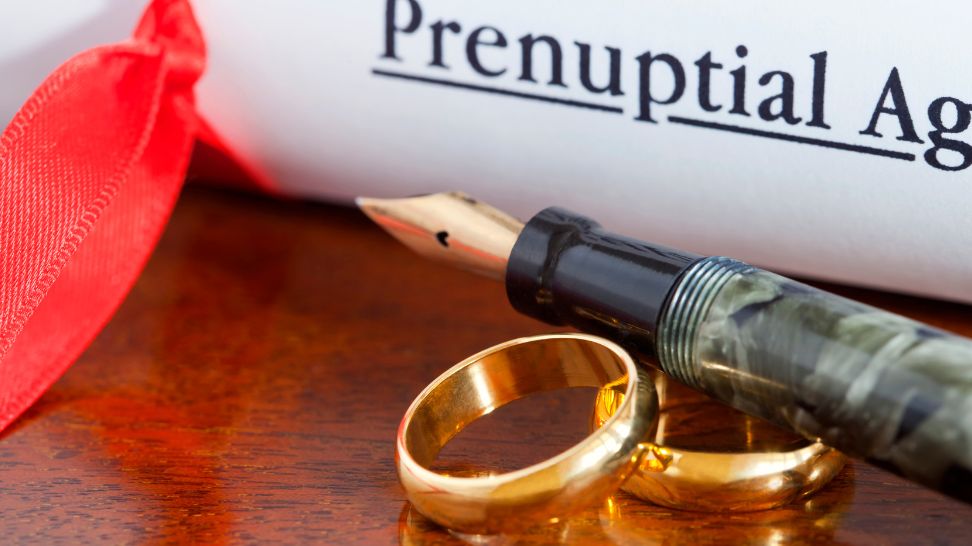A recent U.S. Federal Reserve survey found that fewer than one-third of American households are fortunate enough to receive inheritances when their loved ones pass away. It also discovered that about 90% of households lucky enough to land inheritances only receive an average of between $9,700 and $45,900.
If you ever find out you’re in line to collect an inheritance, protect it at all costs. Ask important questions like, “Can your inheritance be at risk of a lawsuit?” and learn the answers. It should help you avoid losing either part or all of an inheritance during contentious legal proceedings.
Discover more about inheritances and see how to protect them below.
Legal Basics of an Inheritance
A shocking study revealed that almost half of American senior citizens die with “virtually no financial assets.” When these people pass away, their families don’t have to worry about what to do to protect a non-existent inheritance.
But if one of your immediate family members dies, there’s a chance they might leave at least a small inheritance behind. This inheritance may include:
- Cash
- Homes
- Vehicles
- Cryptocurrency
- Financial securities (stocks, bonds, etc.)
- Jewelry
- Artwork
- Collectibles
If your loved one left a will behind — which is, unfortunately, not as common as it should be, considering only about one-third of Americans have wills — you can typically collect an inheritance with ease. Otherwise, you may need to go through the probate process to secure an inheritance.
Either way, protecting an inheritance from the start is important. Your loved one likely worked hard to accumulate assets so they could pass them on. By protecting them, you can keep your loved one’s legacy intact and potentially set your family up for long-term financial success.
Vulnerabilities of Inheritances to Lawsuits
Sadly, the answer to the question, “Can your inheritance be at risk of a lawsuit?” is “yes.” If you and your family members aren’t careful, you may risk losing some or all of an inheritance during a legal battle.
The good news is you can protect inheritances against lawsuits. But the bad news is many families aren’t proactive enough about protecting inheritances, and they don’t realize this until it’s too late.
Legal Scenarios Where Inheritances Might Be at Risk
Many legal scenarios can put inheritances at risk. Here are several examples of when you might wonder, “Can your inheritance be at risk of a lawsuit?”
Debt Collection Cases
Nearly half of Americans believe they’ll pass on debt to their loved ones when they die. This shouldn’t come as a huge surprise when you consider about two-thirds of U.S. adults are currently in debt.
You’ll be happy to hear the Fair Debt Collection Practices Act makes it illegal for debt collectors to harass you about a deceased loved one’s debts following their death. However, that doesn’t always mean your family will be off the hook concerning these debts.
In many states, creditors can file claims against the estates of those with outstanding debts. As part of the probate process, your family may need to sell some of your loved one’s assets to pay off debts.
It’s why your family should try to avoid the probate process, if possible, by encouraging a loved one to work with an experienced attorney who knows the ins and outs of asset protection. It can put their assets in a place where creditors can’t touch them.
Divorce Cases
Reports released in recent years suggest the U.S. divorce rate is lower than it has been in about 50 years. But hundreds of thousands of married couples still call it quits each year.
If you ever file for divorce after receiving an inheritance from a loved one, it can cause complications. Inheritances are often considered separate property in many U.S. states, which means the people who inherited them can keep them following a divorce. But this isn’t always the case.
A judge in a divorce case might consider an inheritance divisible if it has already been comingled with joint assets. They may also consider it divisible if you live in certain states that allow judges to make inheritances divisible based on a case’s circumstances.
This is another great reason to take asset protection seriously if you’re ever awarded an inheritance. It could prevent half, or more, of an inheritance from being wiped out during a divorce.
Bankruptcy Cases
Bankruptcy cases increased by almost 17% from 2022 to 2023, according to the Administrative Office of the U.S. Courts. Over 450,000 Americans filed bankruptcy in 2023 alone.
If you ever file for bankruptcy and then learn you’re slated to receive an inheritance, your case could impact your ability to secure it. If you receive this inheritance within 180 days of filing Chapter 7 bankruptcy, it can be used to pay creditors. If you receive it within 180 days of filing Chapter 13 bankruptcy, it could increase the amount of money you’ll be asked to pay creditors each month.
An asset protection attorney can provide information on how to avoid having a bankruptcy case affect an inheritance.
Inheritance Disputes
A surprising 2023 survey showed that almost 60% of American families admit to being involved in disputes over inheritances. More often than not, they’re small squabbles settled in-house without taking legal action. But some spill over into courtrooms with family members fighting over who should receive which assets.
Helping your loved one secure the proper estate planning services and taking advantage of asset protection can help your family avoid inheritance disputes later.
Community Property vs. Common-Law States in Different Jurisdictions
The issue of common law property vs. community property is something that comes up during divorces. Judges tend to divide up assets between two people going through a divorce according to the common law and community property laws in their states.
The majority of states are common law states. In these states, any assets that only feature one spouse’s name are considered the property of that spouse. If a spouse receives an inheritance, they can claim it belongs to them in a common law state.
Community property states operate differently. They consider any assets acquired during a marriage to belong to both spouses, regardless of whose name appears on them. Arizona, California, Idaho, Louisiana, Nevada, New Mexico, Texas, Washington, and Wisconsin are community property states.
Role of Trusts in Protecting Inheritances
No matter which state you live in, you can take steps to protect inheritances. One of the effective ways to protect them is by transferring them into offshore trusts.
When you place assets from an inheritance into an offshore trust, you can help ensure it remains off-limits to creditors, lawsuits, and even your own family members. You can work with an experienced attorney to put the assets from an inheritance into an offshore trust for safekeeping.
Impact of Marital Status & Prenuptial Agreements
A person’s marital status when they die can impact the inheritances they leave behind. Many states provide the spouses of those who have died with the largest percentages of the inheritances they’re set to receive.
Many couples also take it upon themselves to put prenuptial agreements in place before walking down the aisle to spell out how they would like future inheritances to be handled. For example, a couple might agree that the inheritance a woman expects to receive from her father will belong solely to her at the time of his death and not to her husband.
Your marital status and/or any prenuptial agreements you may have signed can put an inheritance at risk. It’s always a good idea to discuss any concerns you have with a reputable asset protection attorney.
Protective Strategies and Preemptive Measures
The truth is that any inheritance you receive can be at risk of a lawsuit long before you even secure it. Everyone from debt collectors to your soon-to-be ex-spouse might try to weasel their way in and collect some or all of an inheritance through legal maneuvering.
Protect yourself and your inheritance by:
- Telling your loved one to create an official trust and go through the estate planning process
- Looking into starting an offshore trust specifically for the assets from an inheritance
- Communicating clearly with your fellow family members while speaking about the expectations surrounding a future inheritance
By doing these things, you can change the answer to the question, “Can your inheritance be at risk of a lawsuit?” from “yes” to “probably not.” There is always a small risk of a lawsuit wiping out an inheritance, but you can minimize it by proatcively protecting it.
Call Us To Help Protect Your Inheritance From Lawsuits
It’s discouraging to find out that the answer to the question, “Can your inheritance be at risk of a lawsuit?” is often “yes.” You might feel sad or even angry thinking about someone coming along and trying to take an inheritance from you.
See how simple it can be to protect your inheritance with an offshore trust. Contact Blake Harris Law today for more information on trusts and how they help with asset protection.





